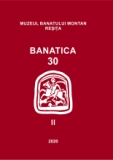Legislation and morals in inter-war Resita
Legislation and morals in inter-war Resita.
Author(s): Minodora DamianSubject(s): Law, Constitution, Jurisprudence, Local History / Microhistory, Social history, Health and medicine and law, Family and social welfare, Interwar Period (1920 - 1939)
Published by: Editura Mega Print SRL
Keywords: prostitution; Reșiţa; inter-war time;
Summary/Abstract: Prostitution was taken for a social aspect at the unsubstantial limit between morals and physiologic needs; for issuing a delicate controversy, it was debated through themes concerning some socio-religious principles, blamed for shattering the heterosexual family. They said that it was generated by some pecuniary needs or, simply, as an effect of a behavioral deviation. The unsettled and frequently unwholesome way of life during and after World War I, especially in the case of the rural population, was one of the circumstances that allowed venereal diseases spreading, an imminent way to arise the mortality rate. The immense absorption of human capital fallowing the strong economic development substantially modified the demographic shape in Reșița; massive industrialization and urbanization in the iron working environments implicitly led to some social factions’ convergence in exploiting the working class ‘primary instincts’ for material benefits. The inter-war statistic researches present the existence of two owners of buildings in Reșița, where prostitution was frequently practiced. Family of Francisc and Rosa Crăciun, and Iuliu Bocor held locations nearby which the hypothesis of infantile prostitution and human trafficking was circulating. Daily starvation and sustenance during World War I were malign traces that contributed to inter-war social morals shattering and facilitated so the venereal diseases coming out. To stop prostitution extension, not to permit malign perpetuations, the local authorities, with the support of legal norms, undertook actions referring to the daily life in Reșița, in order to eradicate any tentative of spreading the bad results of carnal desires for mercantile aims. Consequently, approaching such a controversial and long debated theme means discussing about prostitution both as an antithetic element if reported to social, medical and even religious components of community, and a result of a mixture of elements coming from the basic instinct of surviving.
Journal: BANATICA
- Issue Year: 2/2020
- Issue No: 30
- Page Range: 409-426
- Page Count: 18
- Language: English

